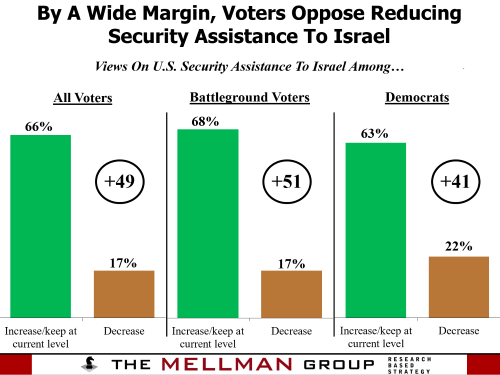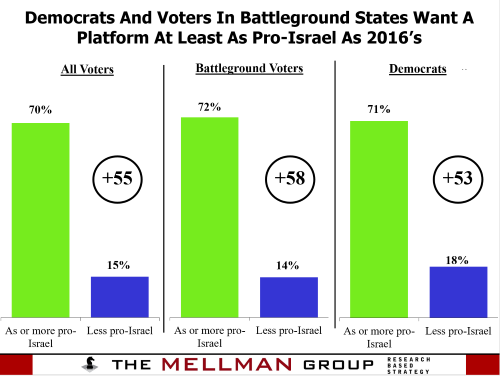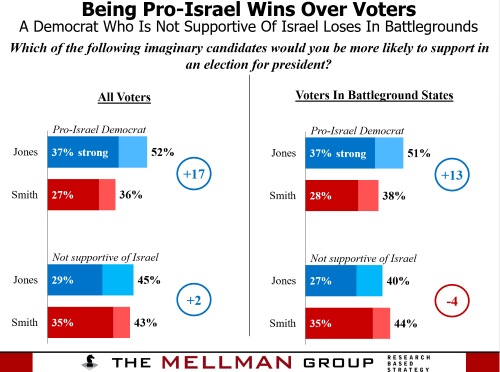An overwhelming majority of Americans, including Democrats and voters in battleground states, consider themselves pro-Israel, oppose reducing U.S. security aid to Israel, and want the Democratic Party platform to remain at least as pro-Israel as it was in 2016. Moreover, when it comes to votes, pro-Israel Democrats do better against Republicans than those who are not aligned with the Jewish State. You can read the full poll memo here.
The poll, conducted by The Mellman Group on behalf of Democratic Majority for Israel, and released today, shows:
Sixty-seven percent (67%) of U.S. voters, 68% of Democrats and 68% of voters in battleground states describe themselves as pro-Israel. Among Democrats, 72% describe Israel as a strong U.S. ally, with 59% recognizing the beneficial relationship between our two countries when it comes to national security.
Two-thirds (66%) of all voters, along with 63% of Democrats and 68% of battleground state voters oppose reducing U.S. security aid to Israel.

Seven in ten (70%) voters, including 71% of Democrats and 72% of battleground state voters, would like to see a Democratic party platform that is at least as pro-Israel as the document adopted by the party in 2016. Only 18% of Democrats prefer a platform that is less pro-Israel.

Being pro-Israel helps Democratic candidates pick up votes. Voters in battleground states back a pro-Israel candidate with Democratic positions against a pro-Israel opponent espousing Republican viewpoints by 13 points (51%-38%). On the other hand, that same pro-Israel Republican defeats that same Democratic candidate with a record of “not supporting Israel” by 4 points (44%-40%) — a stunning 17-point swing.

“While some deny the facts, the reality is, American voters have overwhelmingly positive attitudes toward Israel and are strongly supportive of the U.S.-Israel alliance,” said Mark Mellman, president and CEO of DMFI. “Support for Israel is wise policy. This poll shows that it is also smart politics for Democrats, especially in critical battleground states.”
The analysis represents the findings of a national survey of 1,000 voters designed to reflect the likely 2020 general electorate, using a registration-based sample. Interviews were conducted via landline, cell, and text-to-online from July 8-13, 2020. The sample size in battleground states is 439. The margin of error for the survey as a whole is +/- 3.1% at the 95% level of confidence (higher for subgroups).